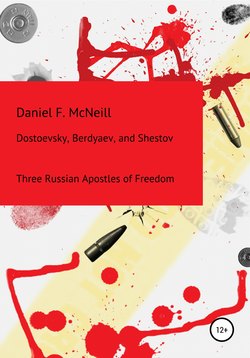Читать книгу Dostoevsky, Berdyaev, and Shestov. Three Russian Apostles of Freedom - Daniel Francis McNeill - Страница 9
Part One
Dostoevsky
9
ОглавлениеDostoevsky confessed that his belief came from “the fire of doubt”. His belief in God went hand in hand with doubt but his belief in Russia and his belief that without the Russian Orthodox church there could be no Russia were not subject to doubt. How could Sonya with little education and experience have found the secret treasure within her if there were no church that transmitted from generation to generation religious practices and kept the possibility of goodness and genuine religious experience alive? The religious experience offered by church rituals and the unity of Russia politically under the Tzar seemed essential to Dostoevsky even if the political system was far from perfect and even though the rituals of the church produced only lukewarm experience. But the goodness that resulted from the public presence of the church did not lead him to the mystery of creation. His “second pair of eyes” drove him to look for truth against nature and in what was behind and hidden from normal eyes.
However in his novel, The Idiot, Dostoevsky tests for us the fate of a man who is genuinely and totally good. His hero, Prince Myshkin, is so good that his extreme goodness is as much a flaw in his character as was extreme rationality in the case of Raskolnikov or extreme willfulness in the case of the Underground Man. The Prince returns to Russia after a long absence in Switzerland and becomes directly involved with several normal people in Saint Petersburg society who are relating to one another trying to resolve regular problems of life. The Prince gets caught personally in their emotional conflicts. He interacts with them with such complete honesty and total goodness that he ends by not helping them but harming them. He is so good he can not fit in regular society. His Christian goodness erodes the power of his human will and isolates him tragically from normal people.
